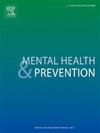Association between social roles and inactive mental health promotion behaviors by age group: A cross-sectional study in Japan
IF 2.4
Q2 Medicine
引用次数: 0
Abstract
Background: This cross-sectional study examines the association between social roles (employment, parenting, and nursing care for family members) and mental health promotion behaviors (physical activity, weekday and holiday cultural activities, communication, relaxation, volunteer activity, activity challenge, and group affiliation) among the Japanese general population.
Methods: Overall, 3,597 people (age: M = 49.48, SD = 16.49) responded to the web-based questionnaire. The participants were asked about their social roles, demographic characteristics, and practice of mental health promotion behaviors. Data analysis was conducted for three age groups: 20–39, 40–59, as well as 60 and above. The multivariate logistic regression analysis was conducted, with social role as the independent variable and mental health promotion behaviors as the dependent variable.
Results: Regarding employment, homemakers had a lower ratio of people who practiced mental health promotion behaviors and this held true among all age groups (adjusted odds ratio [AOR] = 0.28 to 0.63); participants who had parenting roles had a lower ratio of people who practiced mental health promotion behaviors (AOR = 0.30 to 0.60) among the younger and middle-aged. The study could not determine a clear association between mental health promotion behaviors and informal nursing care for family members. Additionally, participants who had parenting and nursing care had a lower ratio of participants who had practiced physical activity in the 20–39-year-old range (AOR = 0.56).
Conclusion: To encourage mental health promotion behaviors, the findings suggest the necessity to provide support for homemakers who simultaneously hold a parenting role to encourage mental health promotion behaviors.
社会角色与不活跃的心理健康促进行为之间的关系:日本的一项横断面研究
背景:本横断面研究探讨了日本普通人群的社会角色(就业、养育子女和家庭成员的护理)与心理健康促进行为(体育活动、工作日和假期文化活动、沟通、放松、志愿活动、活动挑战和团体归属)之间的关系。方法:总共有3597人(年龄:M = 49.48, SD = 16.49)参与了基于网络的问卷调查。参与者被问及他们的社会角色、人口特征和心理健康促进行为的实践。对20-39岁、40-59岁、60岁及以上三个年龄组进行数据分析。以社会角色为自变量,心理健康促进行为为因变量,进行多因素logistic回归分析。结果:在就业方面,家庭主妇从事心理健康促进行为的比例较低,在所有年龄组中都是如此(调整后的优势比[AOR] = 0.28 ~ 0.63);在年轻人和中年人中,扮演父母角色的参与者从事心理健康促进行为的比例较低(AOR = 0.30至0.60)。本研究不能确定心理健康促进行为与家庭成员非正式护理之间的明确联系。此外,在20 - 39岁的年龄范围内,接受过养育和护理的参与者与进行体育锻炼的参与者的比例较低(AOR = 0.56)。结论:为鼓励家庭主妇的心理健康促进行为,有必要对家庭主妇的心理健康促进行为提供支持。
本文章由计算机程序翻译,如有差异,请以英文原文为准。
求助全文
约1分钟内获得全文
求助全文
来源期刊

Mental Health and Prevention
Medicine-Psychiatry and Mental Health
CiteScore
2.10
自引率
0.00%
发文量
22
审稿时长
24 days
 求助内容:
求助内容: 应助结果提醒方式:
应助结果提醒方式:


